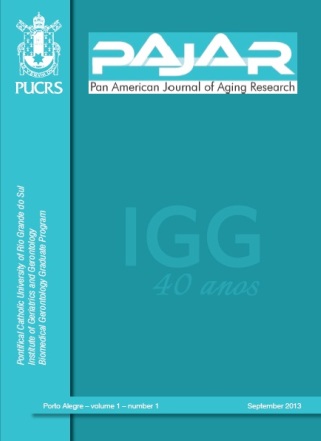Study of juridical resources for medication requested by the elderly in Rio Grande do Sul
Palavras-chave:
Jurisprudence. Elderly. Medication. Systems.Resumo
Aims: This study aims to analyze appeals court orders requesting medicines from 2007 to 2011 in the state of Rio Grande do Sul (RS), Brazil. It also seeks to classify the requested medicines by therapeutic class, prescription order (brand or generic name), presence on the National List of Essential Medicines (RENAME), and composition (combined or not).Methods: The analyzed judgments were available on the website of the Rio Grande do Sul Court of Justice (TJRS) from 2007 to 2011 under the heading “Medicines + elderly.” Judgments analyzed in the study contained three or more medicine orders, which we classified by their therapeutic class.
Results: This study analyzed 154 appeals court medicine orders. Most orders were made
by the elderly women (54.5%). The most requests were made in 2010 (N=45, 29.2%).
Of the 22 RS cities involved, Santa Maria filed the most appeals (24.1%). Of the 46
therapeutic classes found, antihypertensives were requested most frequently. Most orders
consisted of brand-name medication (64.4%). We observed that 142 medicines (92.2%) appeared on the RENAME. Of these, 96 were prescribed using the standard dosage (67.6%), 27 using another dosage (19%), and 19 in combination with other drugs (13.4%).
Conclusion: Although medication is available for free, the elderly seek to legally guarantee this right. Most court orders used the brand name of the medicine, which prevents the order from applying to the same medicine for public networks or government programs that require prescriptions using generic drug names.
Downloads
Downloads
Publicado
2014-03-04
Como Citar
Crippa, A., Bervian, R., Schwanke, C. H. A., & Furlanetto Corte, T. W. (2014). Study of juridical resources for medication requested by the elderly in Rio Grande do Sul. PAJAR - Pan-American Journal of Aging Research, 1(2), 46–51. Recuperado de https://revistaseletronicas.pucrs.br/pajar/article/view/16614
Edição
Seção
Artigo Original






